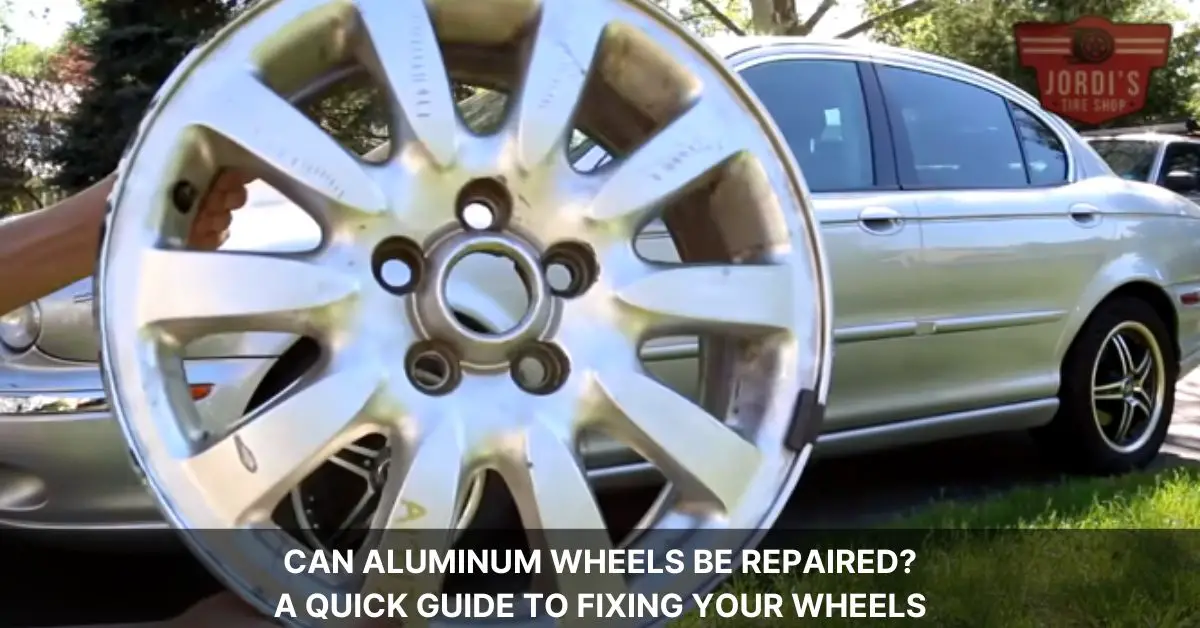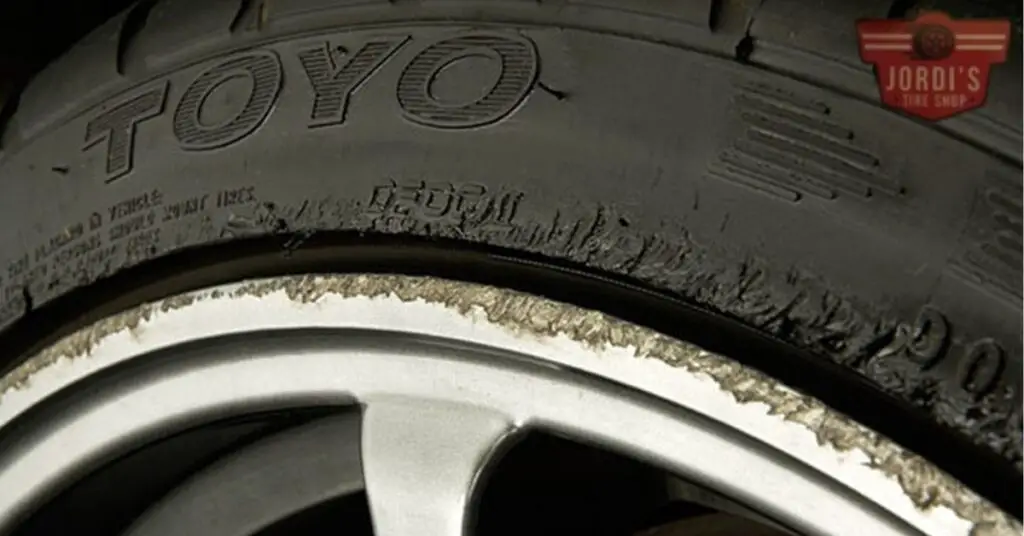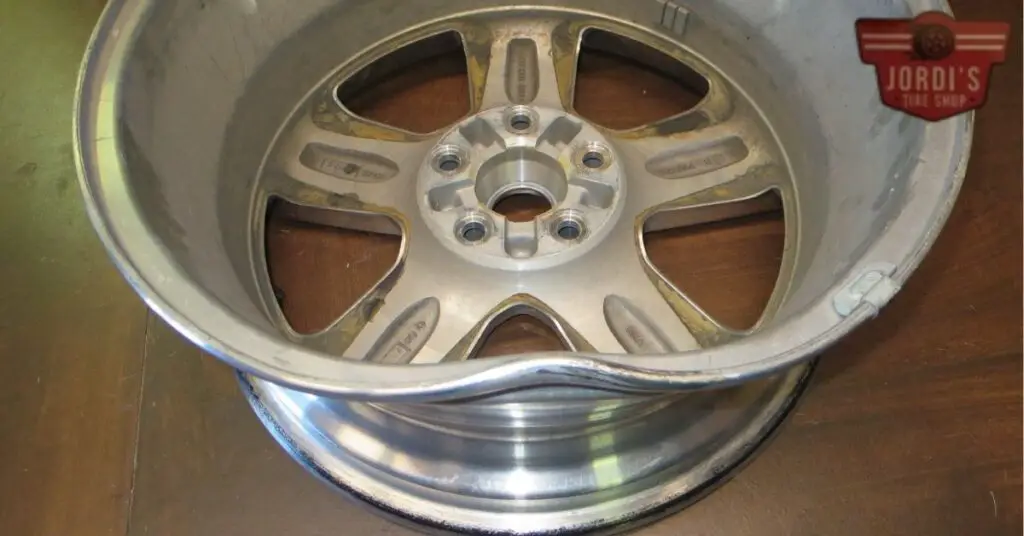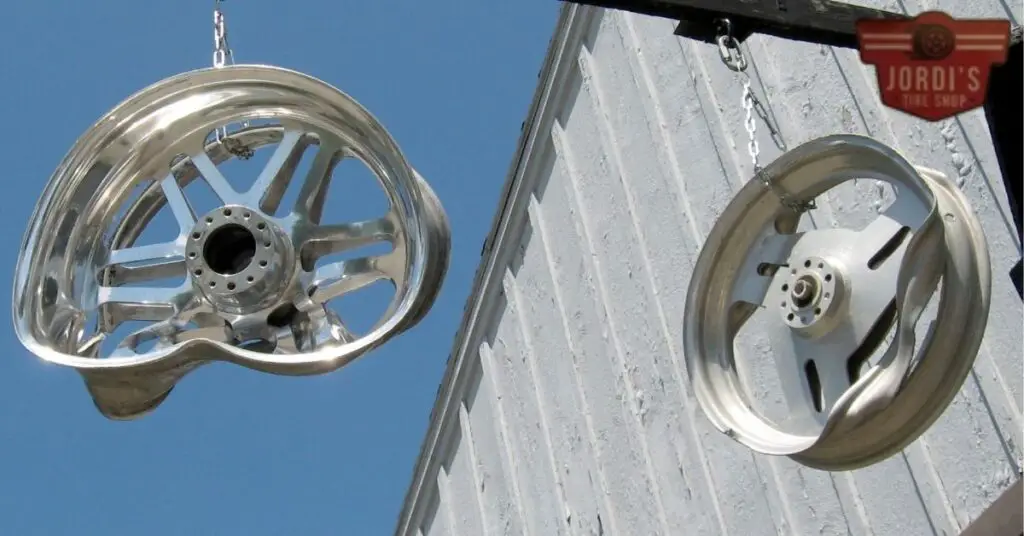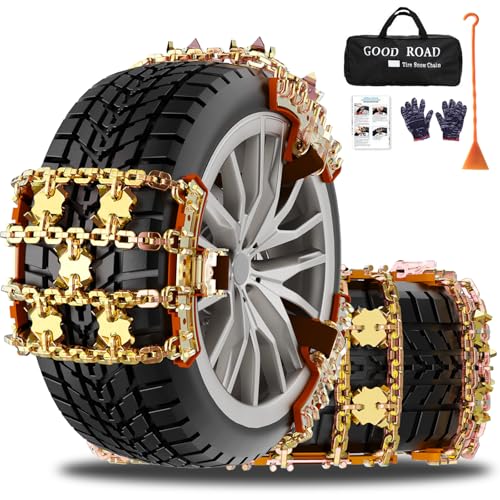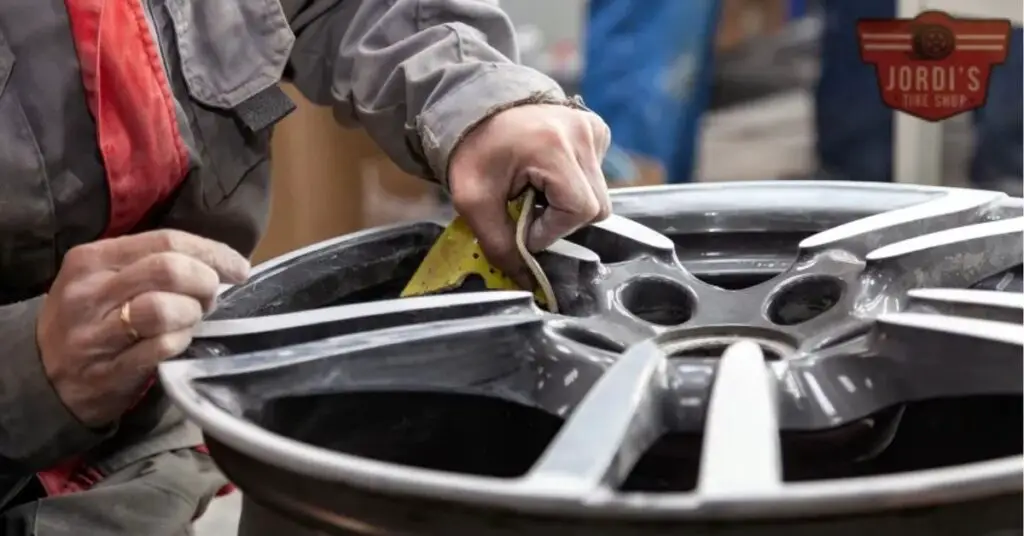Ever had a heart-sinking moment when you’ve noticed a scratch, scuff, or bend on your beloved alloy wheels? Don’t despair! The good news is, a large majority of aluminum wheel damage isn’t a death sentence for your rims. In fact, many of these blemishes are mostly cosmetic, marring the appearance of your vehicle, but not necessarily compromising the wheel’s safety or functionality.
Whether it’s the result of an unfortunate encounter with a pothole or a scrape against a pesky curb, wheel damage is a common plight for drivers. But, it’s not all doom and gloom. Modern wheel repair services can often restore your wheels to their former glory, and in some cases, even improve upon it.
So, before you consider shelling out for a brand-new set of wheels, let’s investigate into the industry of aluminum wheel repair. You might just find it’s the cost-effective, efficient solution you’ve been looking for.
Understanding Alloy Wheel Composition
Unraveling the complex structure of alloy wheels, and particularly aluminum wheels, can provide invaluable insight. In your pursuit to restore or repair your wheels, understanding their composition acts as a compass, guiding your decisions and ensuring satisfying results.
Advantages of Aluminum Wheels
Aluminum wheels, often referred to as alloy wheels, pack a multitude of advantages over their steel counterparts. Primarily, the constituent metals, magnesium and aluminum, result in a significantly lighter product. This reduction in weight enhances your vehicle’s performance and handling, an attribute compounded by the improved grip provided by alloy wheels.
Aside from performance benefits, aluminum wheels have a visual appeal that sets your car apart. Their acclaimed appearance is a major motivator for many, adding important value to the vehicle. Also, they’re known for their superior heat conduction properties, dissipating heat faster than steel wheels. This trait not only enhances performance but also extends tire longevity.
Aluminum vs Carbon Wheels
Comparing aluminum to carbon wheels, it’s important to highlight their unique attributes. Carbon wheels are often lauded for their lightness. But, aluminum wheels counter this with their strength and ability to withstand the rigorous conditions of daily driving. They also maintain a consistent performance across varying weather conditions, unlike carbon wheels, which may lose traction in wet conditions.
A critical comparison factor is the corrosion and rust resistance of aluminum wheels. Their ability to weather corrosive conditions contrasts starkly with steel wheels. Also, aluminum wheels promote improved traction and braking performance due to a decrease in unsprung weight.
When considering fuel economy, aluminum wheels take the lead. Given their lighter weight, they provide better handling and performance, leading to increased fuel efficiency. This aspect directly effects your fuel consumption and eventually, your wallet.
Finally, in terms of repair and cost, aluminum wheels tend to be more prone to cosmetic damage but are repairable depending on the extent and type of damage. Factors including the type of wheels, their size, and the location of damage will influence repairability, guiding your decision between repair or replacement.
Common Issues with Aluminum Wheels
Aluminum wheels, albeit visually pleasing and performance-improving, are not immune to certain issues. You might encounter a few common problems like scratches, bent rims, dents, or even air leaks that require proper attention. Knowing these issues can help you exercise timely caution and prevent costlier repairs in the future.
Scratches and Scuffs on Alloy Wheels
Scratches and scuffs, which are quite common, often occur when your wheels accidentally scrape against the curb or similar objects. These scratches aesthetically diminish the wheel’s appearance. But, you’ll be relieved to know these surface-level defects can be repaired effortlessly. It generally involves sanding down the affected area to smoothen the surface, followed by the application of a color-matched auto paint to make them look brand new again.
Bent Alloy Wheels – Causes and Consequences
Driving over a pothole or hitting a curb can result in bent alloy wheels. This particular issue can cause uneven tire wear, steering wheel vibrations, and could even lead to more serious suspension problems if not addressed immediately. Alloy wheels, provided they’re not extensively damaged, can be straightened and restored to their original shape by professionals— making wheel repair a practical option to consider.
Cracks and Dents in Alloy Wheels
Cracks and dents, often from high-impact collisions or oversized potholes, represent a more menacing issue for alloy wheels. They compromise not only the wheel’s aesthetics but also its structural integrity which influences your vehicle’s safety and performance. Repair processes often involve cleaning the damaged area, filling the cracks or smoothing out the dents, and finishing off with a primer and paint.
Leaking Air – What Does it Mean?
Finally, air leaks from your alloy wheels could signify possible cracks, dents, or damage in the wheel rim. This could result in consistent pressure loss, leading to poor fuel economy and negatively affect handling capabilities. Inspect the tires regularly for any sudden pressure drops, and in instances of a suspected leak, seek immediate professional assistance. Repairing or replacing the faulty wheel will rectify the issue, ensuring your car maintains optimum performance.
Can Aluminum Wheels be Repaired?
Absolutely, aluminum wheels can undergo repairs, restoring their look and functionality. Let’s investigate further into the repair process and the necessary tools.
The Repair Process: How it Works
The repair process varies, depending on the type of damage present in your alloy wheels. For minor cosmetic issues like scratches or scrapes, a simple sanding, priming, painting, and clear-coating sequence usually suffices. It’s key to match the paint with your wheel’s original color for a seamless finish.
But for more important issues, such as bent rims or small cracks, the repair process becomes more involved. Expert technicians might use a hydraulic machine to straighten bent wheels or employ specialized welding techniques to mend cracks. After the primary repair work, refinishing gets underway to return the wheel to a “like-new” condition.
And for severely damaged wheels, particularly those with deep cracks or larges dents, safety becomes paramount. In these cases, remanufacturing the whole wheel might be the safer option rather than trying to repair it.
Tools Needed for Alloy Wheel Repair
Alloy wheel repair isn’t a DIY job for car owners. It requires an assortment of professional tools for an effective and safe repair process.
Typically, a technician uses a hydraulic wheel straightening machine, which puts an even force on the bent areas of your wheel. Welders come in handy for addressing minor cracks. For refinish tasks, paint materials suited to your particular rim color, as well as primer and clear coat, are important. Sanding tools are essential for smoothing out rough patchwork before the painting process starts.
A rotary tool, a wheel balancer, and a tire changer are also essential tools in the wheel repair process, assisting technicians in effectively handling and fixing any problematic alloy wheels.
Remember, each step in the wheel repair process requires expert knowledge and careful execution. It’s always safer to entrust your wheels to certified professionals who have undergone rigorous training and are equipped with the right industry tools.
Preventing Aluminum Wheel Damage
Staving off damage to your aluminum wheels necessitates consistent maintenance and routine cleanliness. Conducting these practices not only preserves the integrity and appeal of your wheels, it also saves you time and expense related to repairs.
Regular Wheel Maintenance Tips
Caring for your aluminum wheels extends beyond mere aesthetics, fostering both performance optimization and improved safety. Following a routine maintenance schedule proves beneficial. This includes examining your wheels frequently for early signs of damage such as scratches, dents, or bending. Checking tire pressure regularly also plays a key role in maintaining the health of your wheels as incorrect pressure can lead to uneven tire wear and potential wheel damage.
Remarkably, practicing mindful driving habits can help prevent wheel damage. This involves evading potholes, curbs, and other potential road hazards whenever possible. If curbs can’t be avoided, it’s best to approach them at lower speeds and angles, minimizing impact and hence damage. Similarly, regular tire rotation assists in ensuring balanced wear, aiding in the prevention of uneven pressure distribution which could compromise wheel integrity.
Benefits of Routine Cleanliness
Maintaining the cleanliness of your aluminum wheels serves an essential function in their preservation. Dirt, dust, and grime that accrue overtime can lead to pitting or corrosion if left unchecked. It’s advisable to clean your aluminum wheels frequently using warm water and mild, non-detergent soap. Ensure that the wheels are cool before cleaning to avoid warping or discolouration. Also, applying a liberal coat of wheel wax after every few washes creates a protective barrier against grime, brake dust, and other corrosives.
Notably, cleanliness extends the lifespan of your aluminum wheels. Aesthetically, clean wheels enhance the visual presentation of your vehicle. Functionally, they contribute to the performance and safe operation of your vehicle. From this standpoint, wheel cleanliness transcends mere appearance, marking a important aspect of vehicle maintenance and safety.
Cost of Aluminum Wheel Repair
Fixing a single alloy wheel, if its size doesn’t exceed 20, ranges in cost from $100 to $125. Opt for a wheel that measures 21 or more, and your repair expenses escalate to between $125 and $150 per wheel. Consider, though, the potential savings if you tackle all four wheels simultaneously. A complete set of four 20-inch alloy wheels, for instance, leaves you looking at a bill around $390. If your wheels measure 21 or larger, your collective repair cost could rise to approximately $460.
While understanding these costs might initially cause some price shock, weigh this against the performance deterioration and potential safety hazards that unchecked wheel damage can cause. Such repair costs, hence, become not just necessary, but essential investments in your vehicle’s longevity and your driving safety.
Factor in also that less than professional or DIY repairs can sometimes compound the issue, triggering even greater expenses down the line. Entrusting the task to a skilled, experienced professional reduces risk, optimizes results, and eventually enhances the overall value derived from your repair expenditure. Following this professional path gives you peace of mind and a guarantee that your wheels, once repaired, won’t just look better but perform better too.
Remember, aluminum wheel repair isn’t simply about cosmetic enhancements. It’s about functionality. It’s about safety. Always bear this in mind as you examine the exact costs associated with aluminum wheel repair.
When to Repair and When to Replace Aluminum Wheels
Making a decision between repairing or replacing your damaged aluminum wheels always ruffles a lot of feathers. Both options require diving into your pocket; but, the key to making the right choice lies in evaluating the damage and the potential outcomes each choice presents.
Identifying the Damage on Your Aluminum Wheels
Looking at your wheels closely, small scratches and dents can appear negligible but cumulatively take a toll on the wheels’ appearance and may impact performance. Repairing these minor damages keeps the wheels in perfect shape. The repair process often entails bending the metal back into shape or buffing out scratches. While the costs of such small repairs might seem insignificant, just like the damages, they can quickly add up if left unchecked.
Notably, deep dents and important scratches can jeopardize the structural integrity of your alloy wheels. Such damage compromises not just aesthetics but also the wheel’s safety features. Bending the metal back can lead to further compromises and in such cases, replacing becomes the better option.
Wheel Damages from Road Hazards
Driving presents a myriad of hazards for your vehicle’s wheels. Handling potholes and curbs may seem harmless, but they can result in serious wheel damages. For instance, the impact on aluminum wheels could lead to rim dents. A timely repair when such damage occurs can save you from a full wheel replacement. But if dents and cracks persist, the vulnerability to rust increases, thereby tampering with the wheel’s strength and integrity. At this point, replacement proves to be the pragmatic option.
Repair or Replace: The Price Perspective
When it comes to costs, generally, repairing your aluminum wheels is cheaper than replacing them. But, if your wheels have multiple cracks, deeply set scratches, and important missing metal sections, a replacement becomes a necessity. Essentially, the severity of damage defines whether the repair costs will exceed the replacement option. Comparing quotes in such instances provides a clear direction. If the repair quote surpasses the replacement cost, it definitely signals a time for replacement.
In the bigger picture, understanding the condition of your aluminum wheels forms a important part in making the decision between repair and replacement. Hence, regular wheel inspections and professional consultations are recommended to ensure your safety and maintain optimal performance.
The Impact of Damaged Wheels on Vehicle Safety
Damaged wheels pose a serious risk to vehicle safety. Ignoring scuffs and scratches on your aluminum wheels might seem like a non-issue, as these generally are cosmetic in nature. But, the real concern arises with bends and cracks, which, if left unattended, can escalate into more important problems.
For instance, your damaged wheels can cause uneven tire wear. It’s a common symptom showing that your wheels are bent or buckled, leading to irregular contact with the road surface. Not only does this accelerate tire degradation, but it also affects vehicle handling and ride comfort.
Steering wheel vibration is another telltale sign of wheel damage. It’s usually the result of a bent wheel, reducing your control over the vehicle. With diminished steering response, handling sharp turns and maneuvering around obstacles can become challenging, increasing the risk of unforeseen accidents.
Also, damaged rims are often associated with increased tire problems, such as frequent loss of tire pressure and blowouts. Losing control of a vehicle due to a sudden tire blowout at high speeds is a dire safety concern. These problems underline the importance of remedying wheel damage promptly.
Keep in mind, the more severe the deformity, the higher the risk. For instance, front-side and back-side bends can increase the likelihood of wheel cracking. If the damage reaches this level, the structural integrity of the wheel is in danger, potentially leading to catastrophic failures.
In sum, maintaining the health of your aluminum wheels isn’t merely about securing a smooth ride with a stylish look. It’s crucial to your vehicle’s safety. Hence, regular wheel inspections and immediate repair for any damage found should be a part of your vehicle’s maintenance routine. It’s not just about prolonging wheel life; it’s about ensuring a safe and reliable journey every time you hit the road.
Conclusion
You’ve seen that aluminum wheel damage isn’t the end of the road. Yes, those scratches and bends can be disheartening, but they’re often just cosmetic. The good news? Most of this damage can be effectively repaired, restoring your wheels to their former glory. Understanding the structure of your aluminum wheels can play a big part in making the right repair decisions.
Remember, aluminum wheels aren’t just about looks – they’re lighter than steel, boosting your vehicle’s performance and handling. They’re also better at heat conduction and resist corrosion more effectively. Regular maintenance, mindful driving, and cleanliness can go a long way in preventing damage.
When it comes to repair costs, they’re generally more affordable than buying new wheels. But don’t be tempted by DIY fixes. Professional repair services have the right tools and expertise to ensure the job’s done right.
Finally, never underestimate the importance of addressing wheel damage. It’s not just about aesthetics – it’s about safety and performance. Regular inspections and prompt repairs can keep you safe on the road. So, don’t let aluminum wheel damage get you down – with the right care and maintenance, they can be good as new.
Related Posts:

